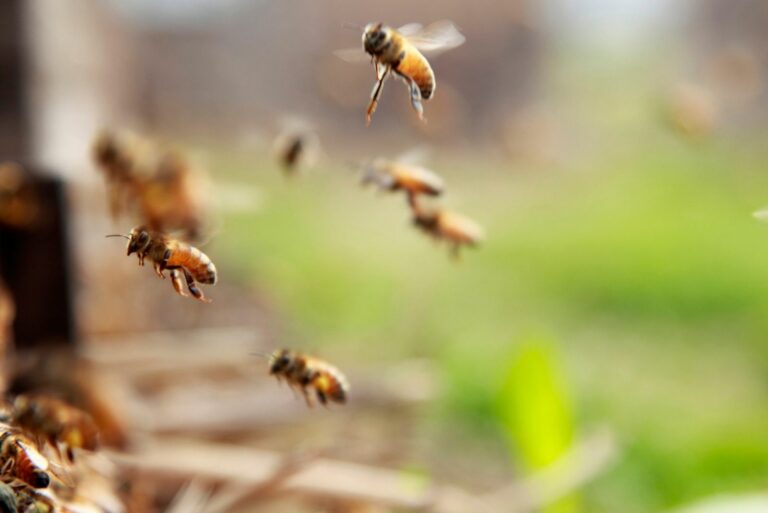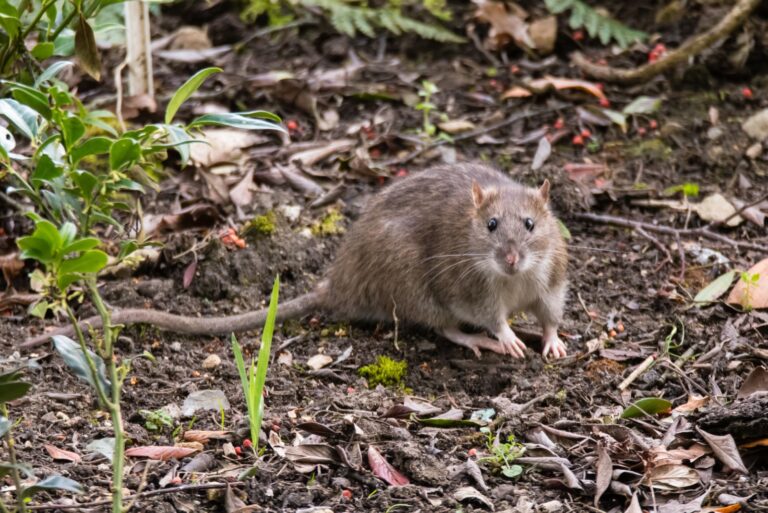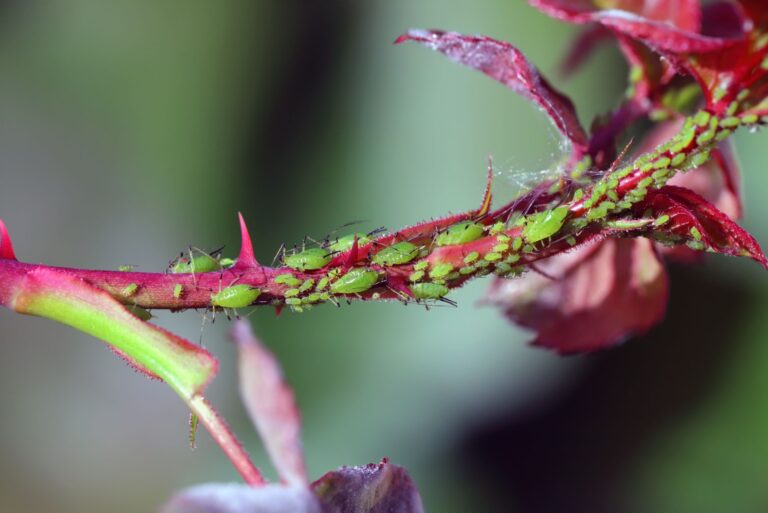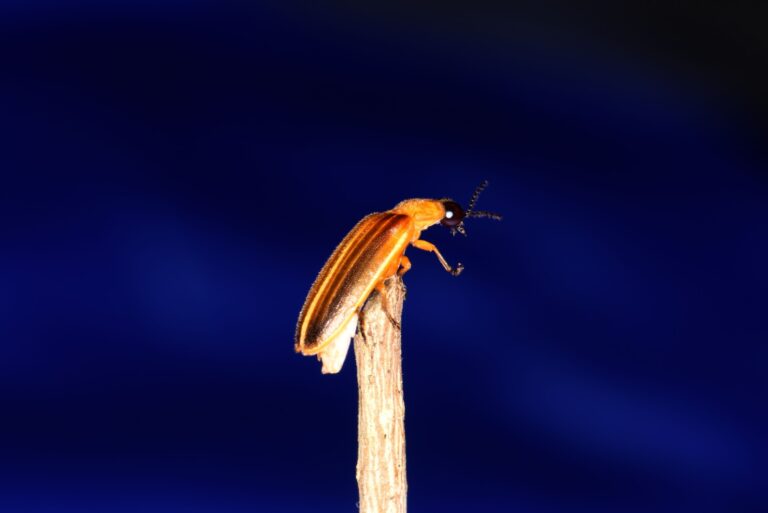14 Helpful Garden Plants That Keep Mosquitoes Away (And 4 That Might Attract Them)

Mosquitoes can turn a relaxing evening in the garden into an itchy nightmare. I used to rely on sprays and candles—until I discovered certain plants could actually help keep those pests away.
From the lemony scent of citronella to the soft leaves of lavender and basil, some plants naturally repel mosquitoes with their essential oils. I’ve tucked these around patios, doorways, and even window boxes—and I’ve noticed fewer bites without all the chemicals. But not every plant is on your side.
Some garden favorites, like water-hungry flowers or certain groundcovers, can actually attract mosquitoes by creating damp breeding grounds. Knowing what to plant—and what to avoid—has completely changed how I plan my garden.
1. Lavender
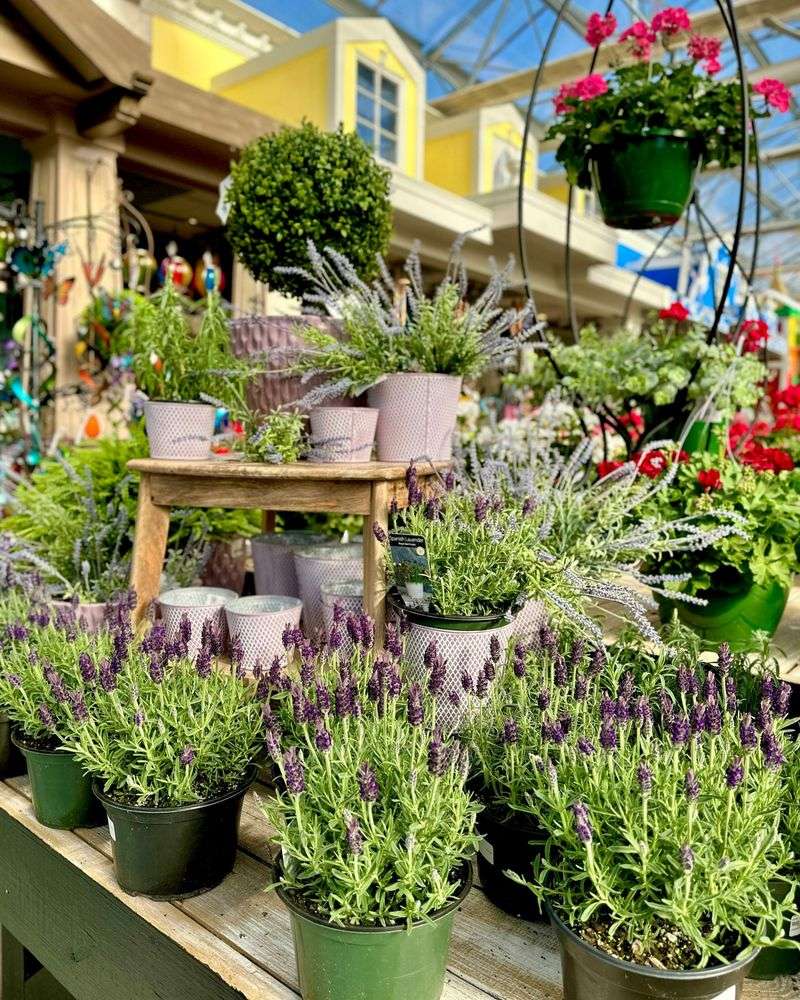
The sweet fragrance we love so much actually repels mosquitoes naturally. Its essential oils contain compounds that these pesky insects simply can’t stand.
Growing lavender near patios or entryways creates a pleasant barrier. I’ve placed pots of it around my deck furniture and noticed significantly fewer mosquitoes during evening gatherings.
For best results, give lavender full sun and well-drained soil. Brushing your hand against the plant releases more of its mosquito-deterring oils, making it both beautiful and functional.
2. Citronella Grass
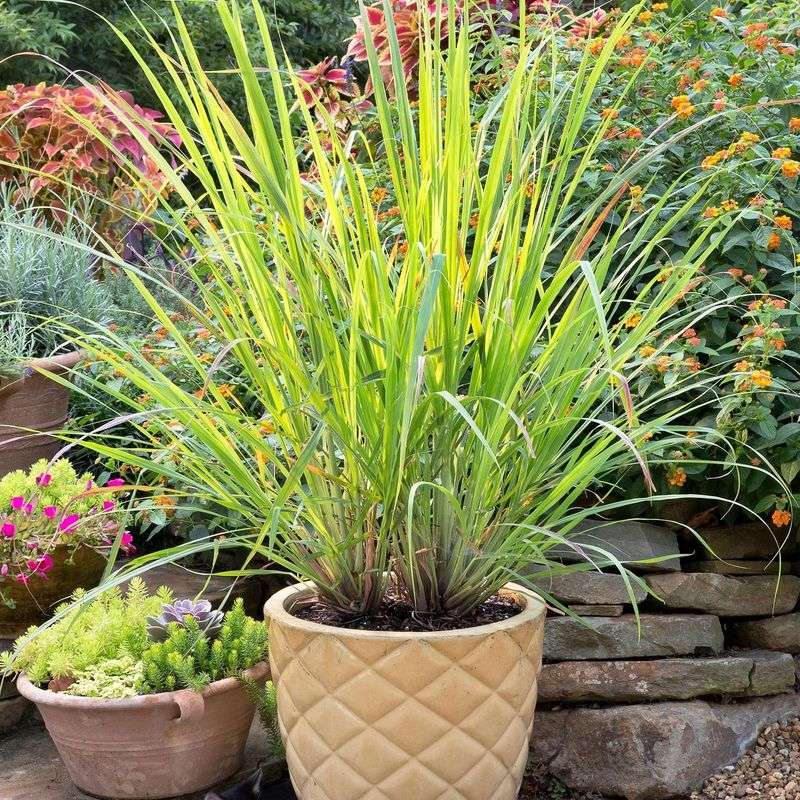
Often considered the gold standard for natural mosquito repellents, this tropical grass contains citronella oil that masks scents mosquitoes are attracted to.
The strong lemony scent disrupts their ability to find you. Placing potted citronella near seating areas provides immediate benefits. During backyard barbecues, I’ve noticed guests instinctively gather near these plants when mosquitoes start appearing elsewhere.
Unlike citronella candles, the actual plant provides continuous protection without smoke or chemicals. Just remember it’s not cold-hardy, so bring it indoors during winter in cooler climates.
3. Rosemary
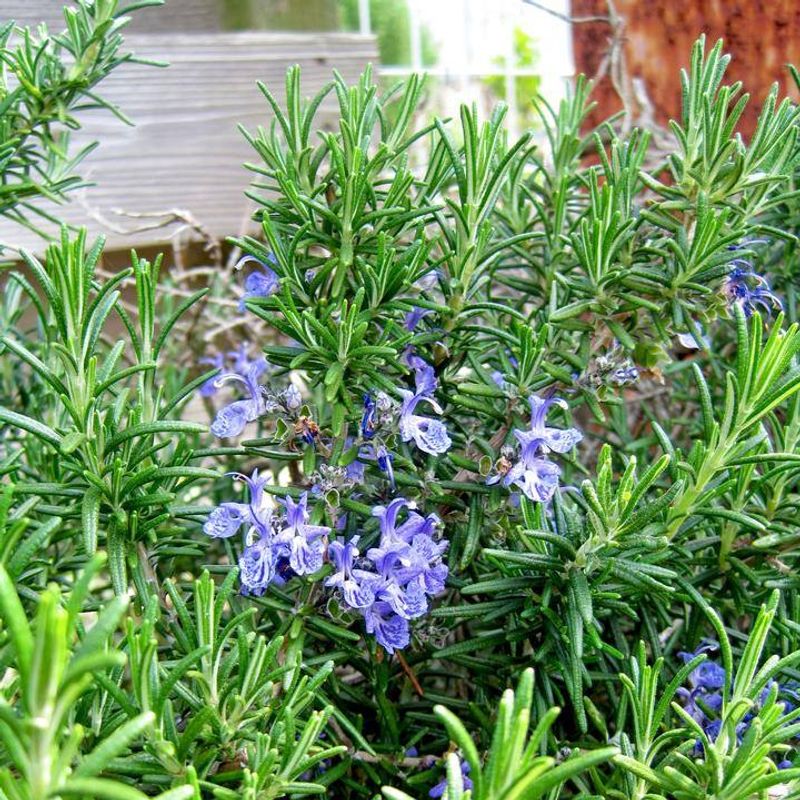
Beyond its culinary uses, rosemary’s woody scent naturally deters mosquitoes and other insects. The oils contain compounds that interfere with mosquitoes’ sensory abilities.
Planted near outdoor dining areas, rosemary serves double duty – seasoning for your food and protection from biting pests. Last summer, I trimmed sprigs to toss on the grill, which created aromatic smoke that kept the entire patio mosquito-free.
Rosemary thrives in hot, dry conditions with minimal care. Even in containers, it maintains its mosquito-repelling properties while adding a Mediterranean charm to your garden.
4. Marigolds
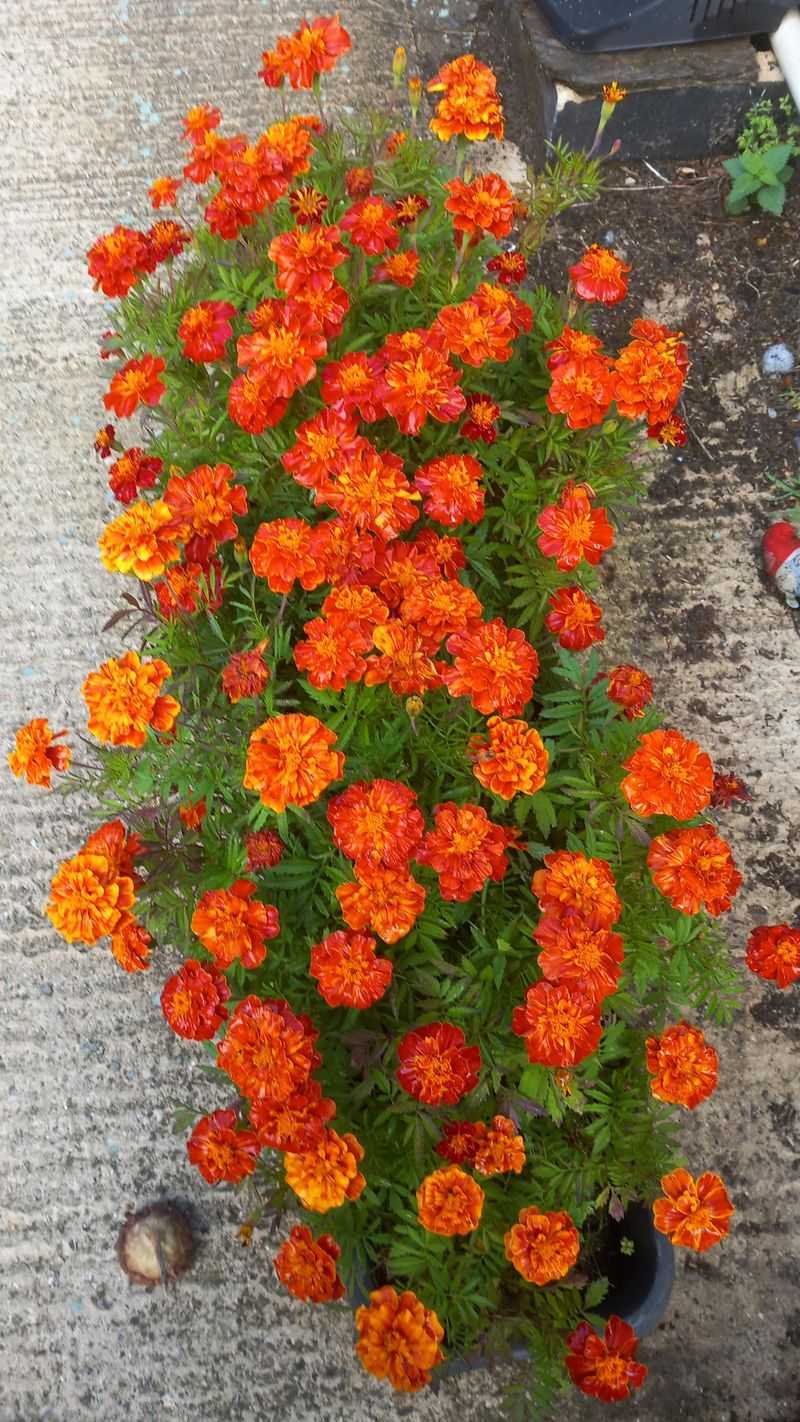
These bright flowers contain pyrethrum, a compound used in many commercial insect repellents. Their distinctive smell confuses mosquitoes and disrupts their hunting patterns.
Strategically planting marigolds around garden borders creates a colorful defensive perimeter. My vegetable garden has fewer mosquitoes since adding marigold companions between rows and along pathways.
As an added benefit, marigolds also deter other garden pests like aphids and nematodes. Their easy-growing nature makes them perfect for gardeners of all skill levels looking for multi-purpose plants.
5. Basil
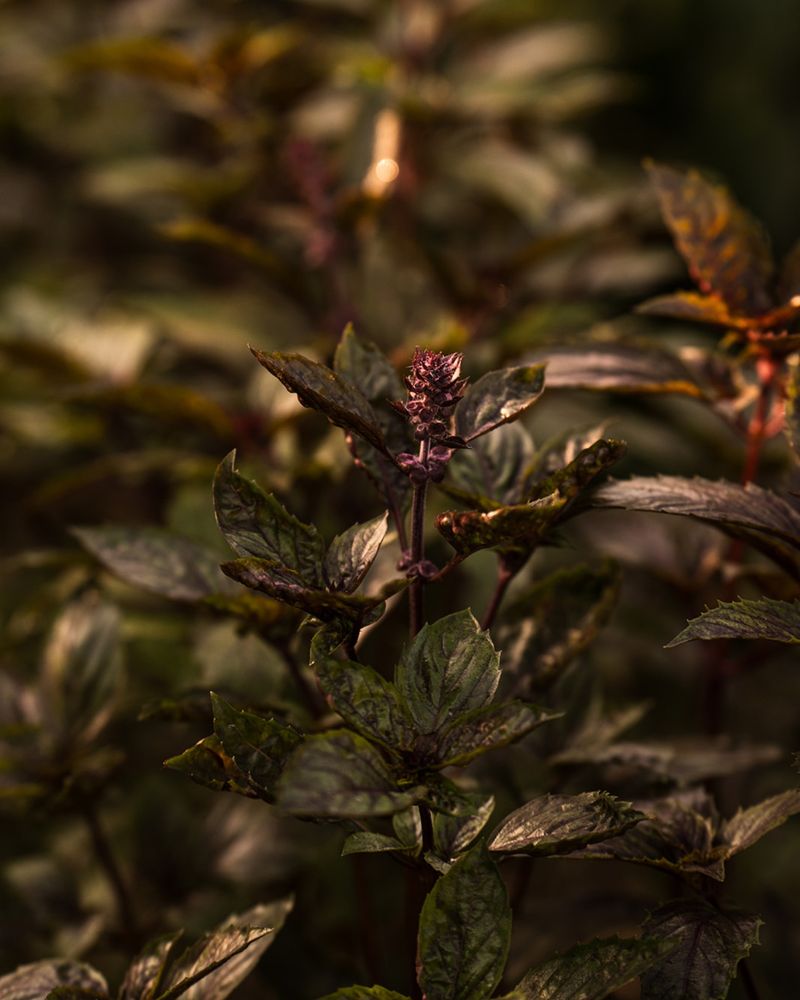
Few herbs pull double-duty quite like basil does in the mosquito-fighting department. Its strong aroma contains four volatile compounds that these bloodsuckers absolutely hate.
Growing basil in pots near doorways and windows helps prevent mosquitoes from entering your home. The kitchen window box I planted last year not only provided fresh herbs but noticeably reduced the number of mosquitoes that made it inside.
Regular harvesting encourages bushier growth and releases more of the repellent oils. Simply brushing against the leaves while walking by activates its mosquito-deterring properties.
6. Mint
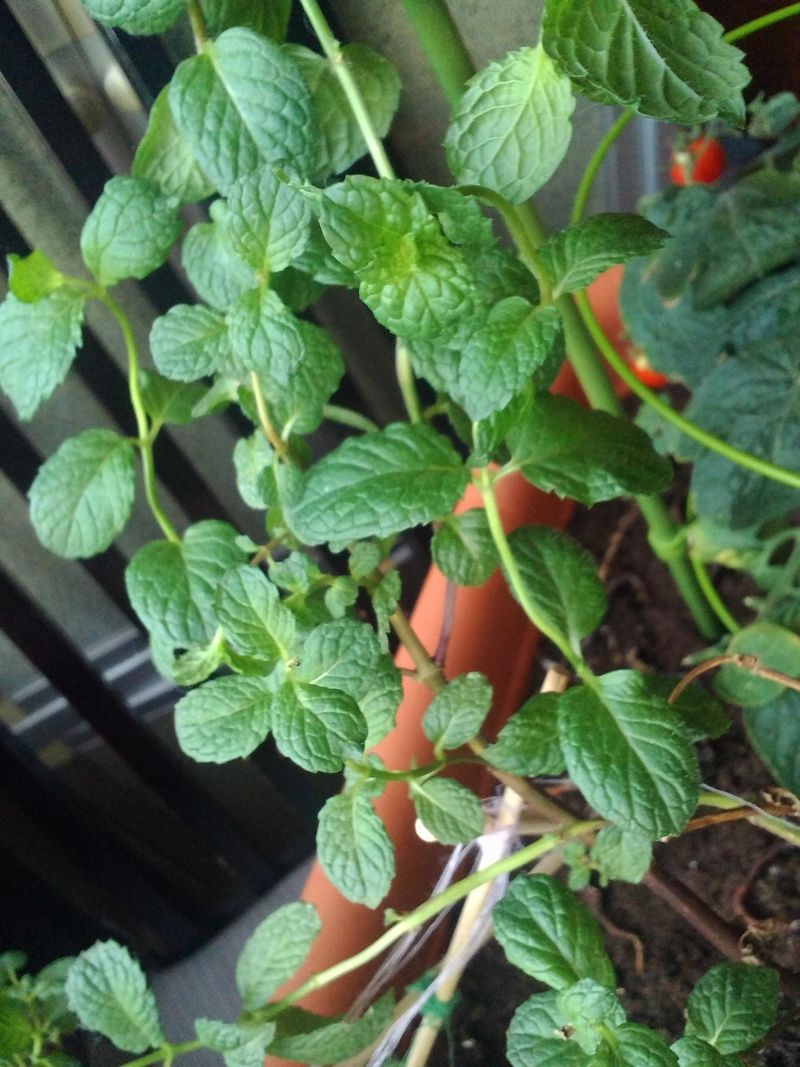
Refreshing to us but overwhelming to mosquitoes, mint’s potent essential oils disrupt these pests’ sensory abilities. The strong menthol scent masks the carbon dioxide and lactic acid that attract them to us.
Consider planting mint in contained areas since it spreads aggressively. Around our back porch, I’ve used mint-filled planters to create a refreshing barrier that mosquitoes rarely cross.
Crushing a few leaves releases even more repellent compounds. Mint also makes a wonderful addition to summer drinks, offering both flavor and a bit of protection when enjoying evenings outdoors.
7. Lemon Balm
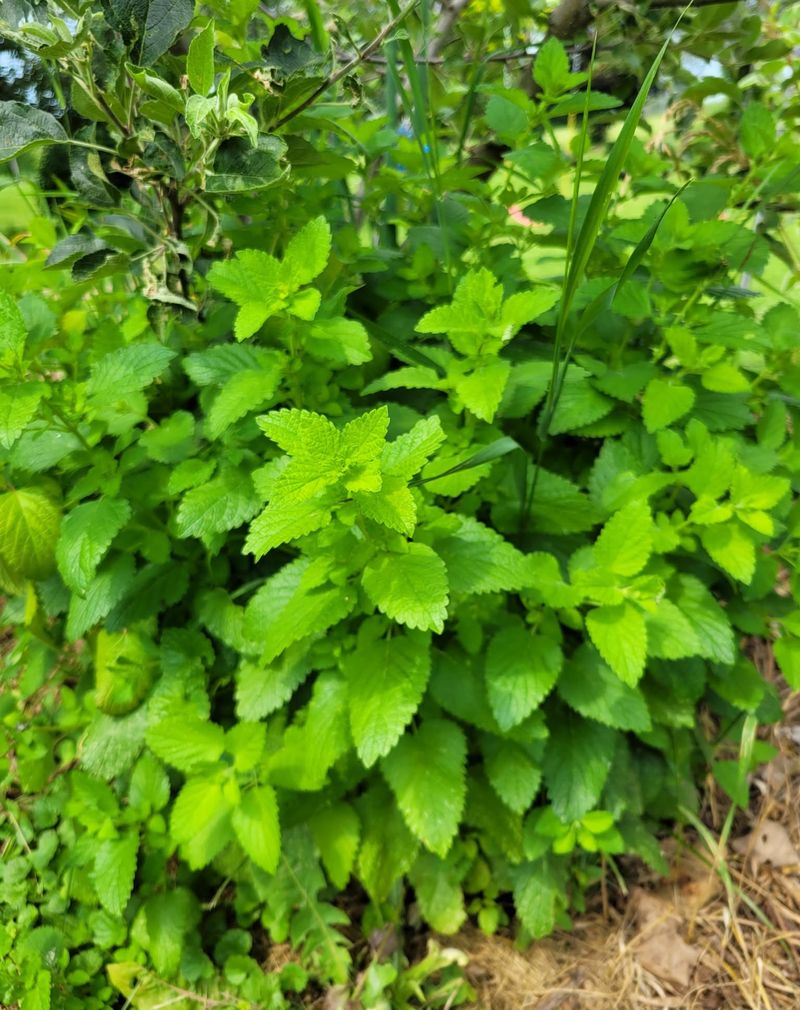
Related to mint but with a distinct lemony fragrance, this herb contains high levels of citronellal, which effectively masks your presence from mosquitoes. Its scent confuses their hunting sensors.
Growing lemon balm near gathering areas provides natural protection during outdoor activities. We’ve planted it along our patio edge, creating an aromatic boundary that seems to significantly reduce mosquito traffic.
Just be cautious about where you plant it – like mint, it can spread quickly. Container growing keeps it controlled while still providing mosquito-repelling benefits wherever you place it.
8. Catnip
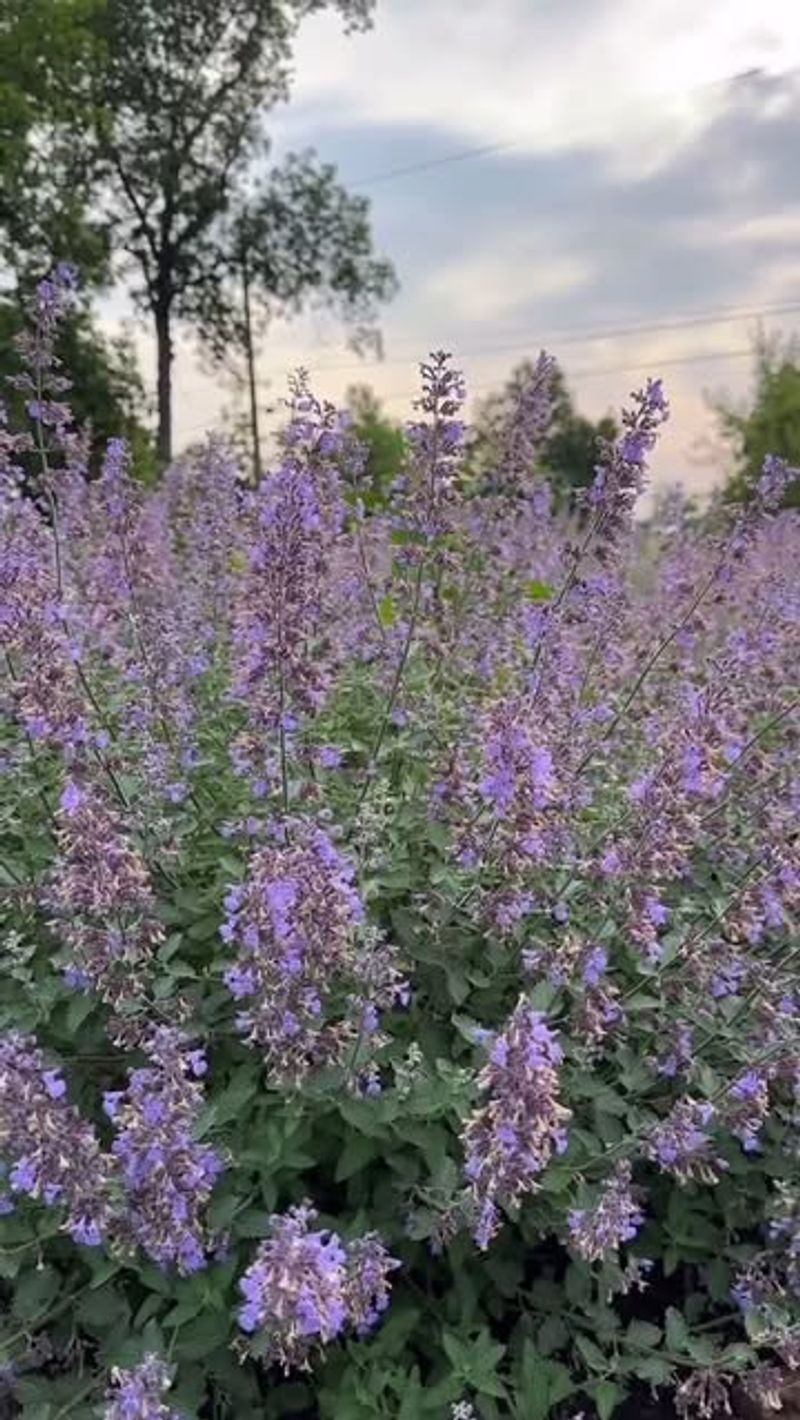
Studies have shown catnip to be even more effective than DEET in repelling mosquitoes. The essential oil nepetalactone drives mosquitoes away while making your feline friends extremely happy.
Planting catnip around the perimeter of outdoor living spaces creates a natural barrier. After adding it to our backyard borders, evening gatherings became noticeably more comfortable with fewer mosquito interruptions.
Catnip grows easily in most conditions and self-seeds readily. Just be prepared for neighborhood cats to visit – they’ll roll in it enthusiastically while helping you maintain a mosquito-free zone.
9. Lemongrass
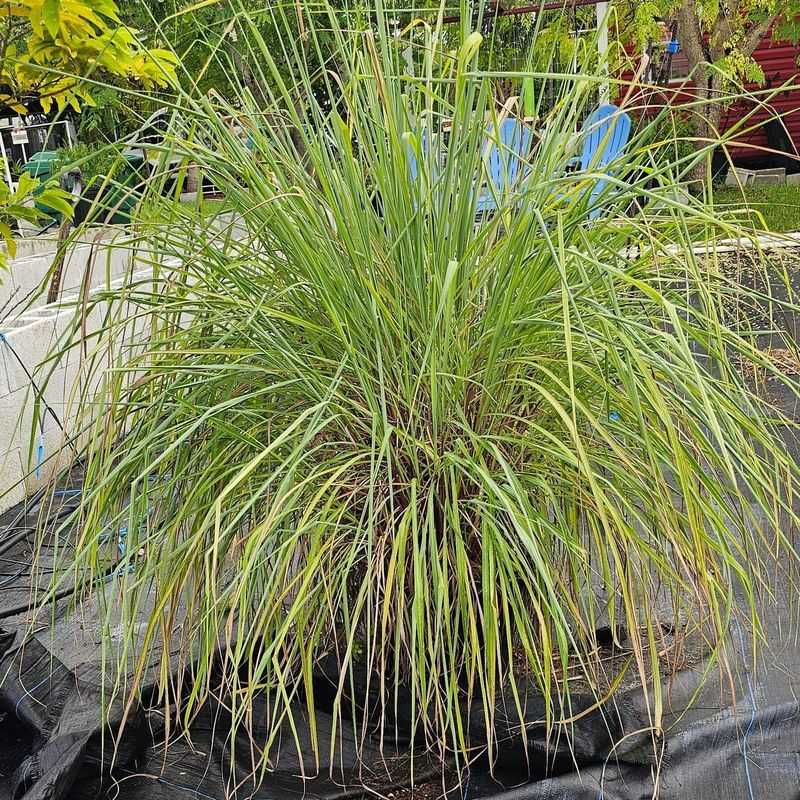
Often confused with citronella grass, lemongrass contains citral and geraniol, which mask human scents that attract mosquitoes. The strong lemony aroma creates an invisible shield around your outdoor spaces.
Growing tall and architectural, lemongrass makes a statement in garden design while providing protection. Around our pool area, several lemongrass plants have transformed previously mosquito-heavy zones into comfortable lounging spaces.
As a bonus, fresh lemongrass makes delicious teas and adds authentic flavor to Thai and Vietnamese cooking. Harvest outer stalks while leaving the plant intact for continued mosquito protection.
10. Bee Balm
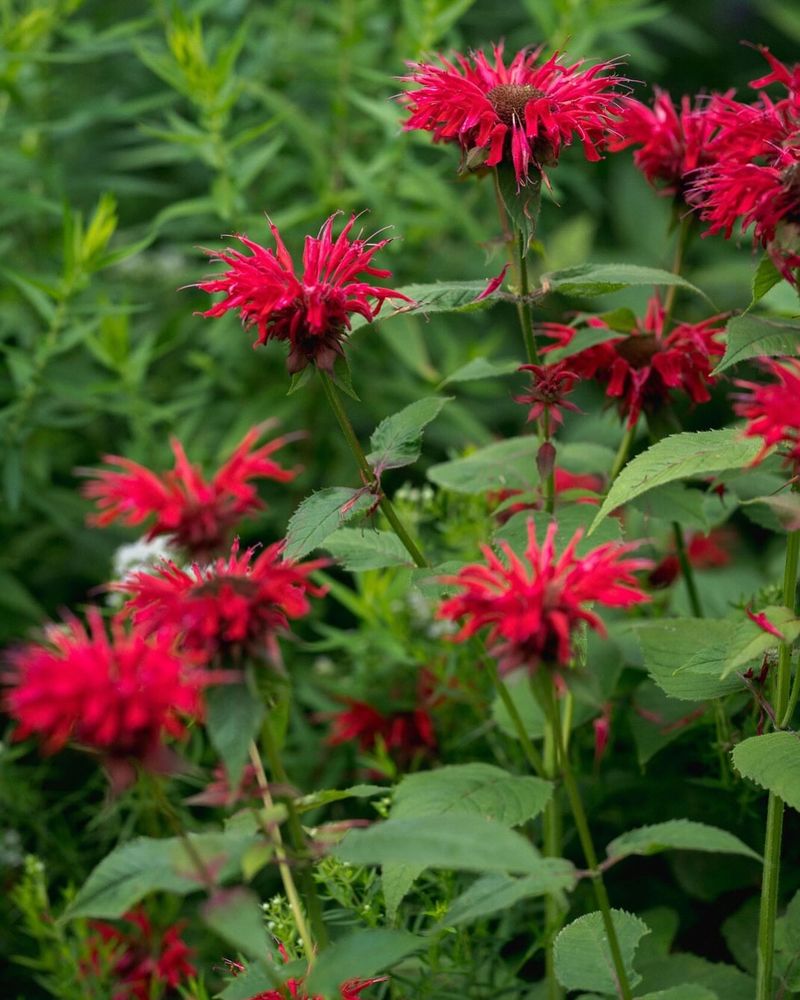
Also known as monarda, this native wildflower emits fragrances that confuse and repel mosquitoes. Its natural compounds interfere with mosquitoes’ ability to locate potential blood meals.
Vibrant flowers attract beneficial pollinators while keeping the pests away. The bee balm patch near my vegetable garden has created a fascinating ecosystem – buzzing with bees and butterflies but remarkably free of mosquitoes.
Choose a variety that suits your garden style – they come in shades from deep purple to bright red. Most prefer partial shade and moist soil, making them perfect for those troublesome damp areas where mosquitoes typically breed.
11. Garlic
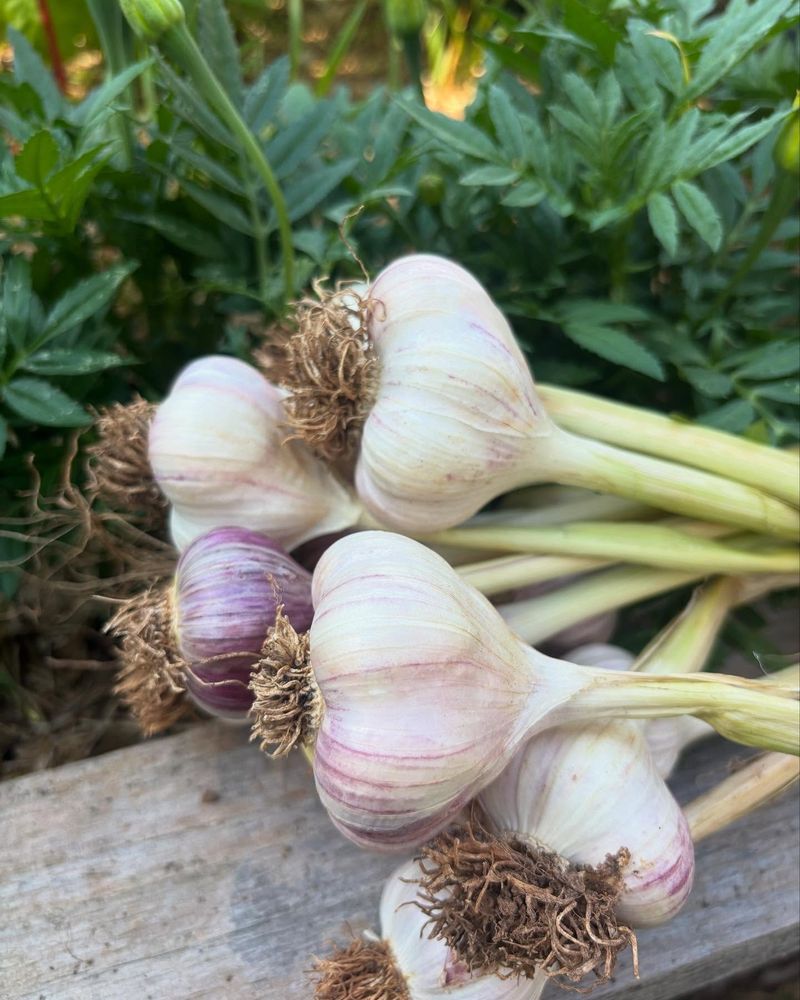
The strong sulfur compounds that give garlic its distinctive smell also act as natural mosquito deterrents. These compounds are released into the air through the leaves as the plant grows.
Interspersing garlic plants throughout garden beds creates widespread protection. My rose garden has shown fewer pest problems overall since I started planting garlic between bushes as companion plants.
For maximum effect, crush a few leaves occasionally to release more of the repellent compounds. The bulbs can later be harvested for cooking, making garlic a practical addition to any mosquito defense strategy.
12. Floss Flower (Ageratum)
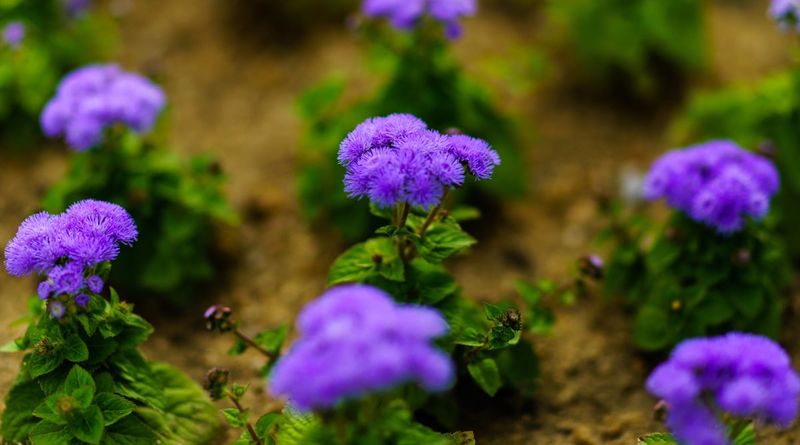
These charming blue blooms contain coumarin, a compound used in commercial mosquito repellents. The chemical disrupts mosquitoes’ ability to locate potential hosts through scent.
Low-growing and perfect for borders, floss flowers create a beautiful boundary that discourages mosquitoes. Along my garden walkway, these blue clusters not only brighten the path but have noticeably reduced mosquito activity.
Unlike some repellent plants, ageratum thrives in partial shade, making it ideal for those mosquito-prone areas under trees or near water features. Their long blooming period provides extended protection throughout mosquito season.
13. Pennyroyal
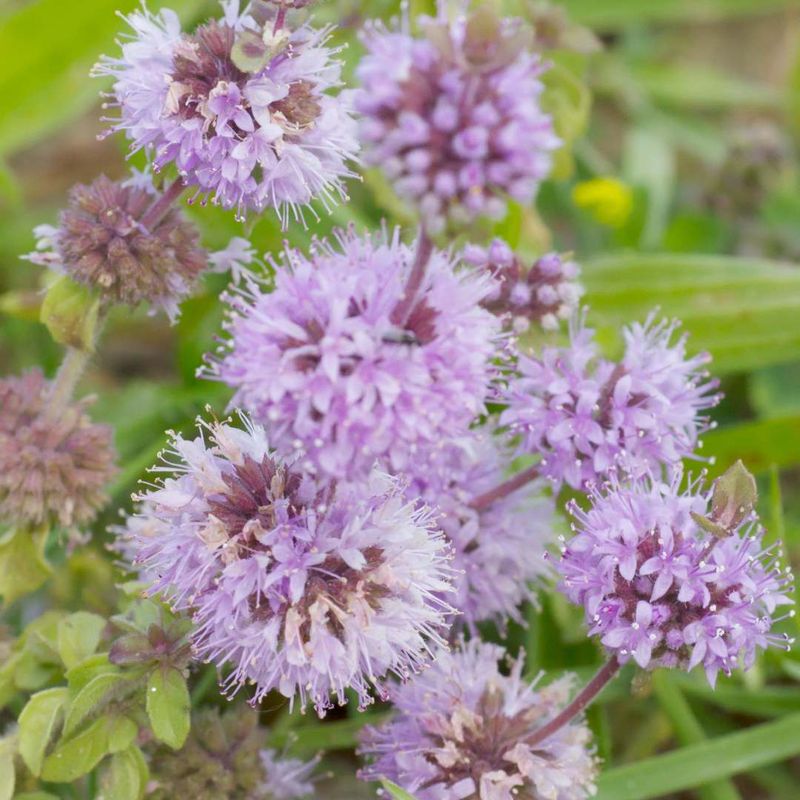
Part of the mint family, pennyroyal contains pulegone, an extremely potent natural insecticide. Just brushing against the leaves releases oils that send mosquitoes flying in the opposite direction.
Creating a pennyroyal ground cover in high-traffic areas offers protection underfoot. The stepping stone path to our garden shed used to be mosquito territory until pennyroyal filled in between the stones.
While highly effective, use caution with this plant around pregnant women and pets – the oils can be toxic when concentrated. For most garden settings though, it poses no risk while providing excellent mosquito deterrence.
14. Geraniums
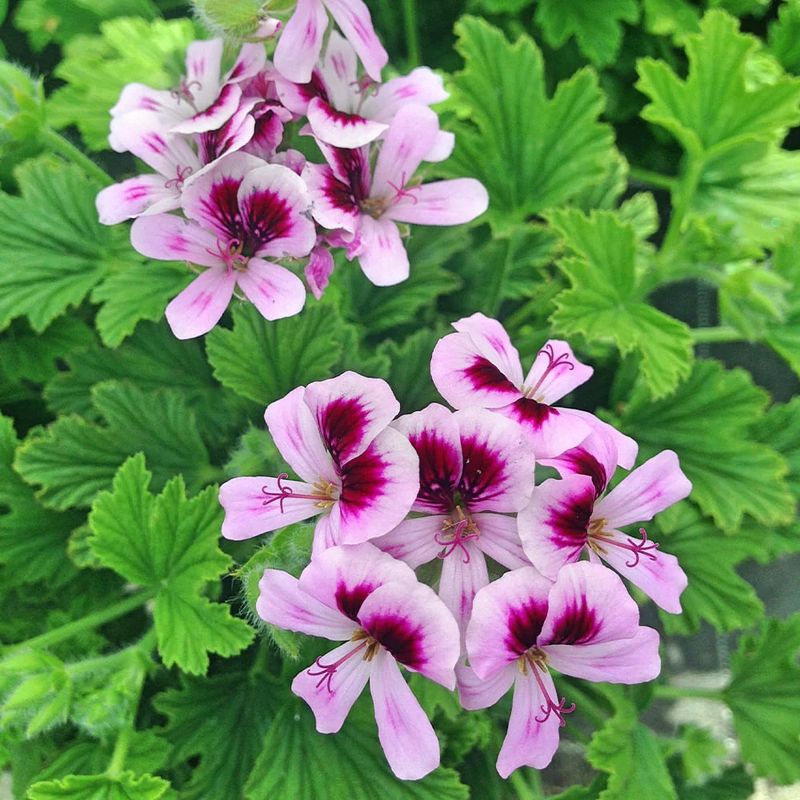
Scented varieties like citronella geranium (Pelargonium citrosum) contain geraniol, the same compound found in commercial repellents. Their lemony scent creates an invisible barrier mosquitoes rarely cross.
Perfect for containers, these versatile plants can be moved wherever protection is needed. Last summer, I surrounded our outdoor dining table with potted geraniums, creating a pleasant and practical mosquito-free zone for evening meals.
Regular pruning encourages bushier growth and more mosquito-repelling oils. The colorful blooms and varied leaf patterns make them decorative additions to any mosquito defense strategy.
15. Water Lilies
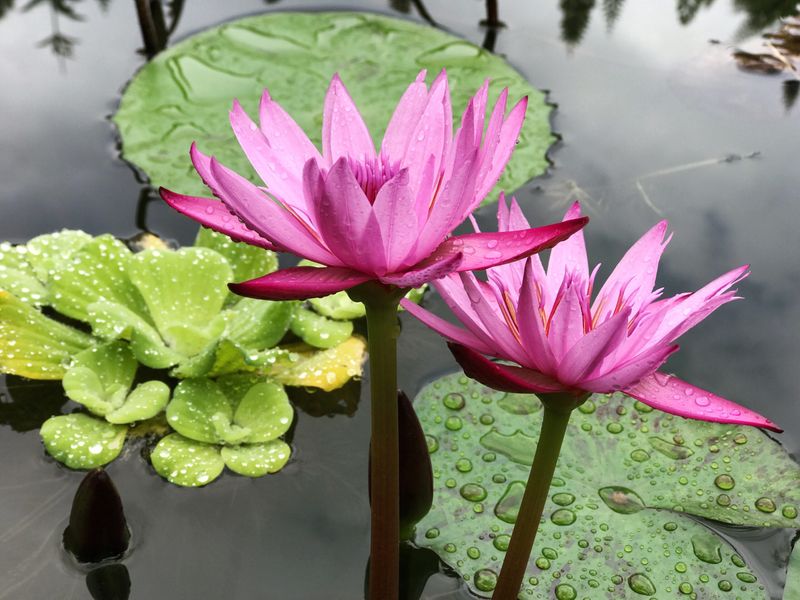
Despite their beauty, water lilies often create ideal mosquito breeding conditions in ponds and water features. Their broad leaves provide sheltered areas where water remains stagnant – perfect for mosquito larvae.
Adding mosquito-eating fish like gambusia or guppies helps control populations naturally. After introducing a few fish to our backyard pond, the mosquito problem decreased dramatically despite the water lily coverage.
Another solution is keeping water moving with small pumps or fountains. Mosquitoes can’t lay eggs in moving water, so circulation eliminates breeding spots while preserving the beauty of water lilies.
16. Sunflowers
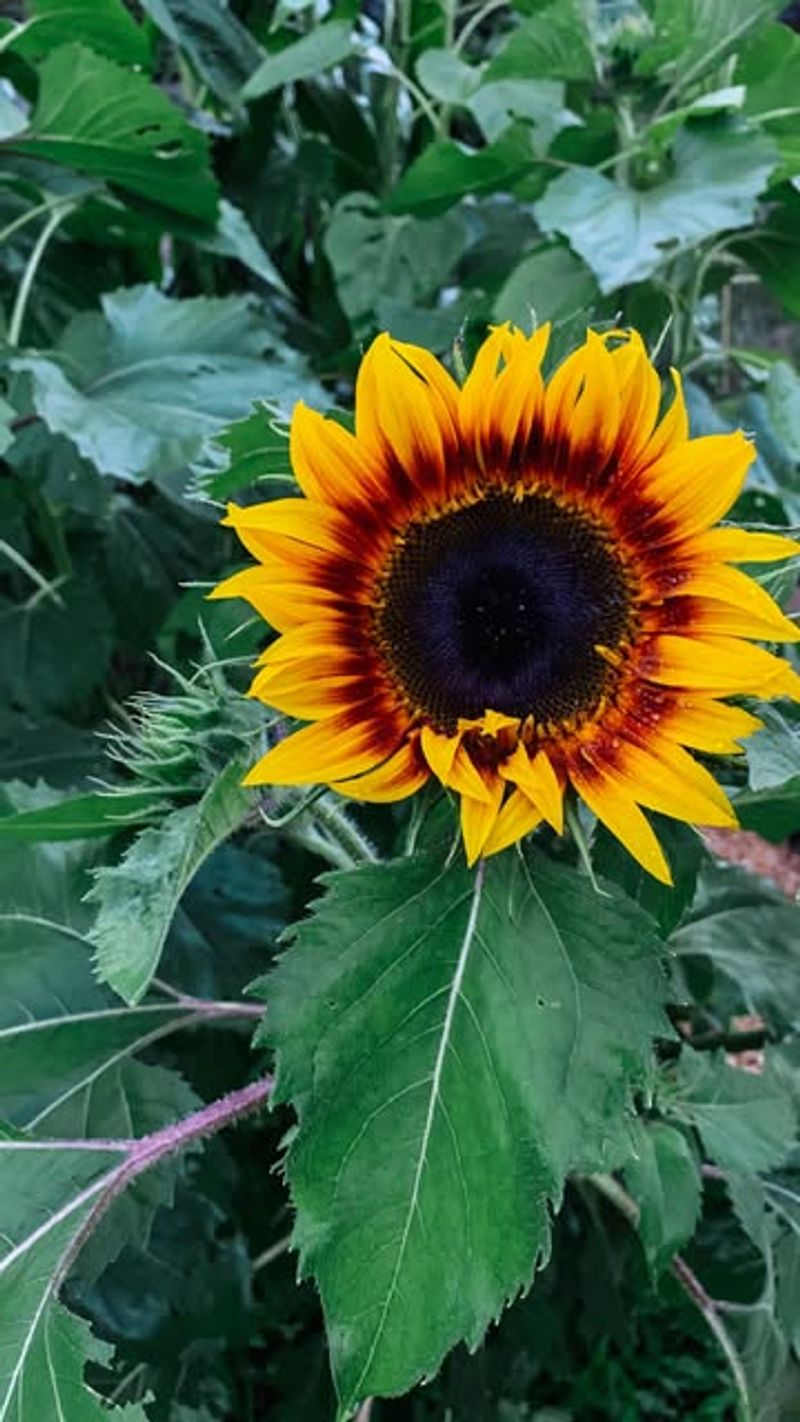
These cheerful giants unfortunately create ideal mosquito resting spots with their broad leaves and dense growth. The underside of sunflower leaves provides shade and protection that mosquitoes seek during daylight hours.
Strategic placement away from seating areas minimizes the impact. I still grow sunflowers but keep them in a dedicated cutting garden rather than near patios or entryways where people gather. Surrounding sunflowers with mosquito-repelling companions like marigolds or basil creates a balanced approach.
This companion planting strategy allows you to enjoy these beautiful flowers without significantly increasing mosquito problems.
17. Flowering Tobacco
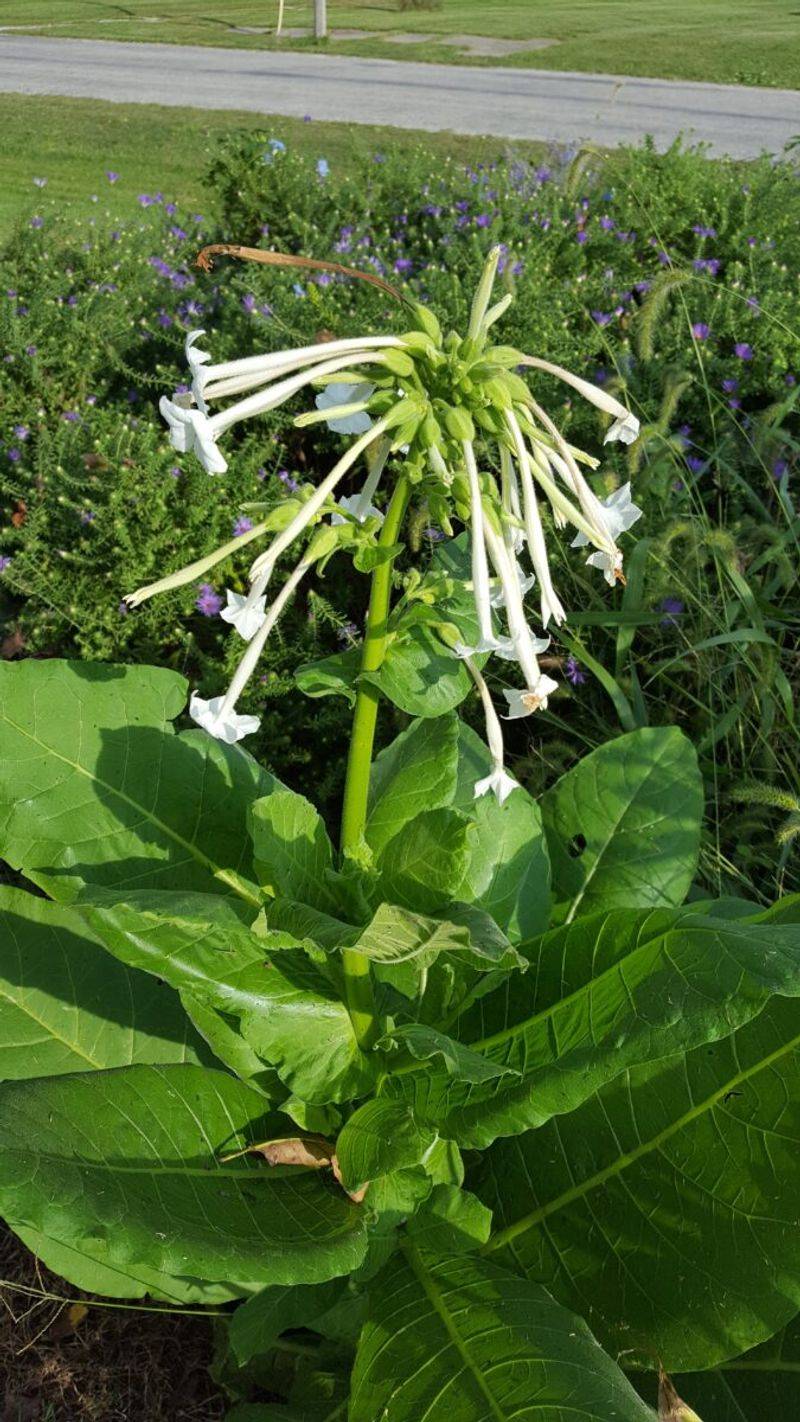
Evening-blooming nicotiana releases a sweet fragrance that unfortunately attracts mosquitoes along with desirable pollinators. The sticky leaves and stems also collect moisture, creating micro-habitats where mosquitoes rest.
Limiting these plants to areas away from evening gathering spaces helps manage the problem. My flowering tobacco now grows exclusively in the front garden where we rarely spend evening hours.
If you love these fragrant bloomers, try interspersing them with mosquito-repelling plants like citronella grass. The combination often neutralizes tobacco’s mosquito-attracting properties while preserving its night garden beauty.
18. Pitcher Plants
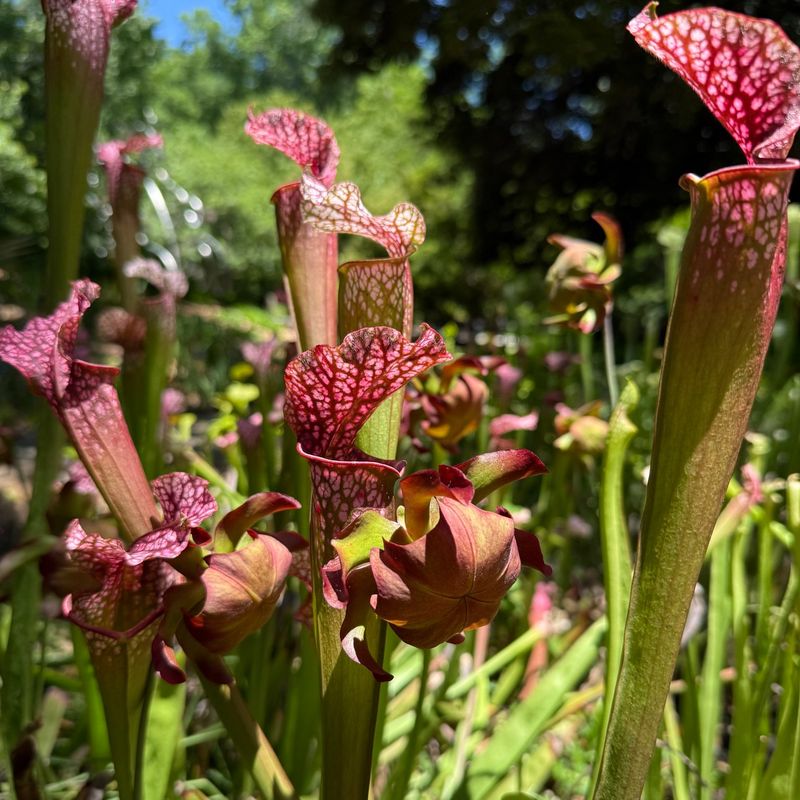
Ironically, these carnivorous plants that eat insects can actually attract mosquitoes to your garden. Their water-filled traps provide potential breeding sites if the digestive enzymes become diluted by rainwater.
Growing them in covered areas prevents rainwater from diluting their traps. Under our porch overhang, pitcher plants remain effective insect catchers without becoming mosquito nurseries.
Regular maintenance helps too – emptying and refreshing the traps periodically eliminates any mosquito larvae. With proper care, these fascinating plants can shift from potential problem to unique solution in your mosquito management strategy.

